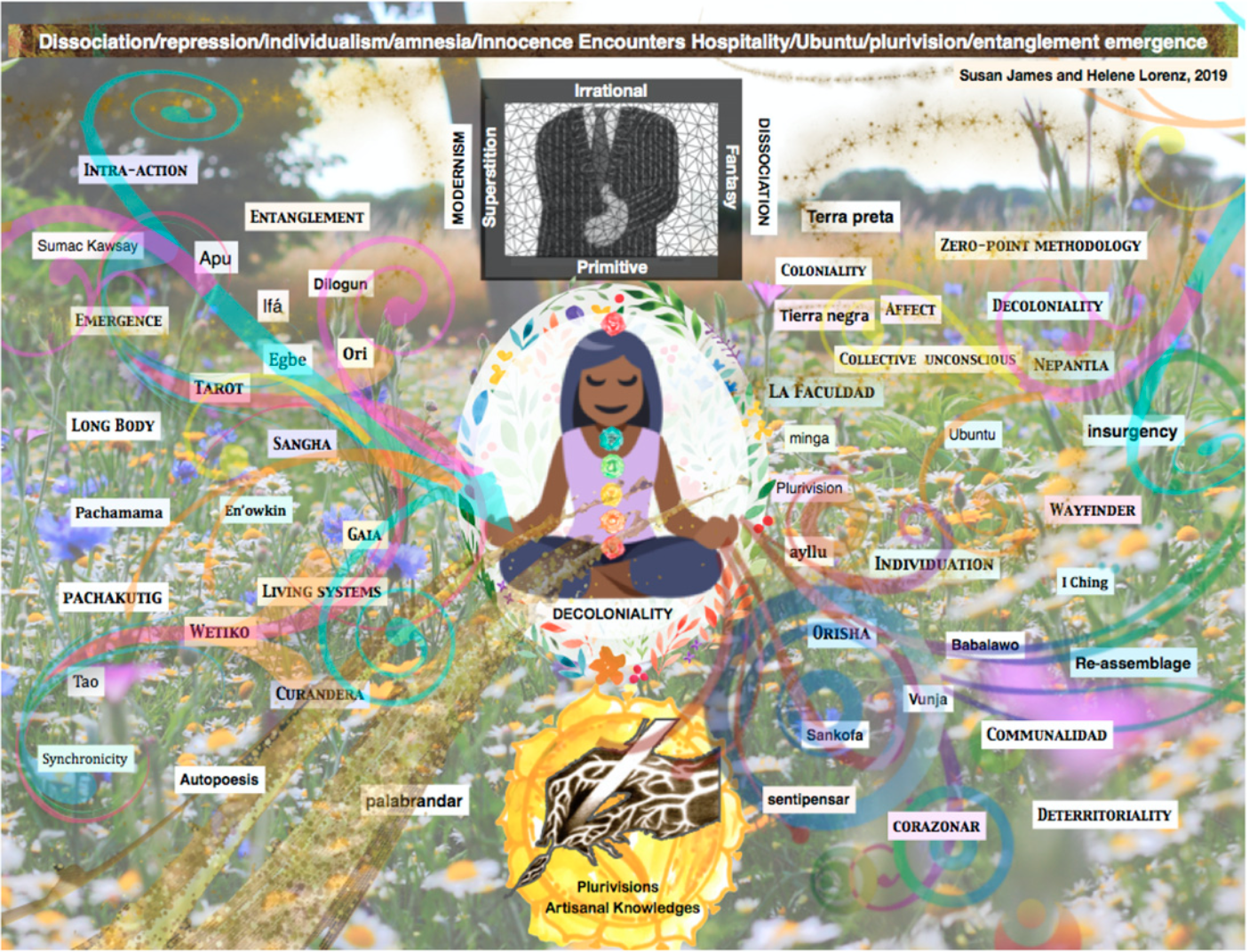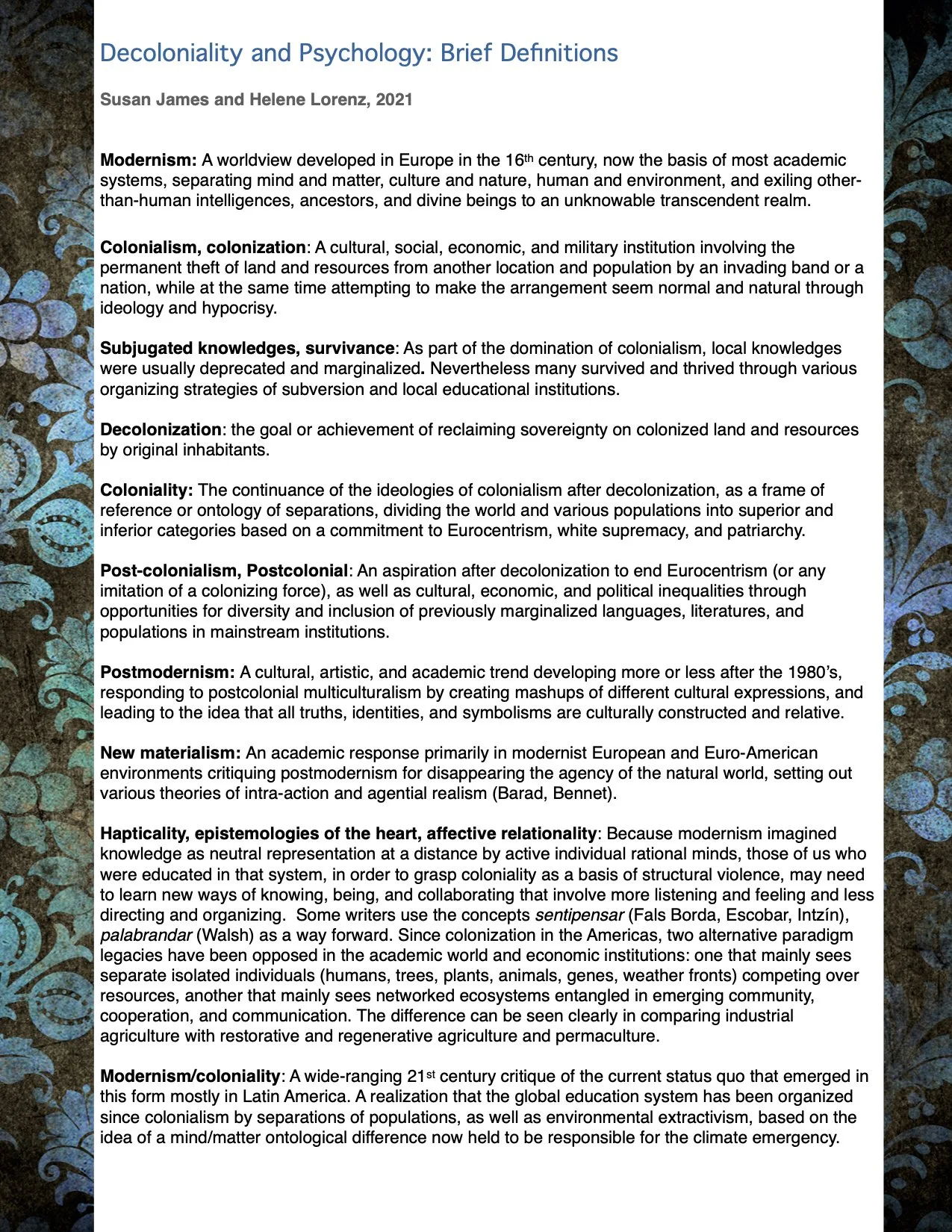
Resources & Publications
Do Your First Works Over
James, S. and Lorenz, H. (2021). Journal of the History of the Behavioral Sciences. DOI: 10.1002/jhbs.22118
This article presents in four parts various understandings of the deep roots of the current climate emergency, some thoughts about alternative transitional paths forward, and the ways the discipline of psychology might be relevant. In Section two, we explore environmental and ontological critiques and analyses that developed in the academic world in the 1990s after the 500th anniversary of the arrival of Columbus in the Americas. In Section three, we analyze the recent emergence of new materialisms and their connections to indigenous relational ontologies and practices in what has been called “the ontological turn” or “the decolonial turn.” In Section four, we trace the effects of coloniality in education. In Section five, we explore ap- proaches to alternative world visions, new educational projects, the possible role of the discipline of psychology in transition discourses, and the urgency of the present moment.
Back to the Source: Moving Upstream in the Curricular Rivers of Coloniality
James, S. and Lorenz, H. (2021). Review of General Psychology. DOI: 10.1177/10892680211046509
This article shares choices made as part of an introductory decoloniality curriculum in a non-clinical community psychology M.A./PhD program where the authors are faculty members. We focus on the basics of decoloniality and decolonial pedagogies in two first-year foundational psychology courses: one course on implications of decoloniality for studying differing psychological paradigms, ontologies, and epistemologies, particularly relational ontologies that might reframe community environments, and another course on implications of decoloniality for post-humanist and indigenous qualitative research methodologies. We present currently emerging forms of theory, content, pedagogy, dialogue, artivism, and methodology in process in our work, as well as responses from students and our own reflections.
Water, Life, and Insurgency in a Time of Climate Emergency
James, S. and Lorenz, H. (2019). Hearing Voices. Pacifica Graduate Institute
“Our people’s belief is that we are part of the land. The land is not separate from us. The land sustains us. And if we don’t take care of her, she won’t be able to sustain us, and we as a generation of people will die” (Freda Hudson, Unist’ot’en Hereditary Spokesperson).
Emergent Ecologies: Remapping and Researching Environmental Subjects
James, S. and Lorenz, H. (2018). Hearing Voices. Pacifica Graduate Institute
“The making conscious of the functioning of these codes will enable humans to determine these self-regulating codes rather than to be determined by them. This would be the central goal of a science of human systems.” Sylvia Wynter
Why Groups for People of Color and Racial Justice Allies?
James, S. and Lorenz, H. (2016). Hearing Voices. Pacifica Graduate Institute
“For people of color, race- dialogue is more than ironic. A certain kind of violence that shifts the standards of humanity for people of color and whites is necessary if race dialogue is more than an exercise in safety but a search for liberatory possibilities.” Leonardo, Z. and Porter, R.K. (2010, p. 140).





